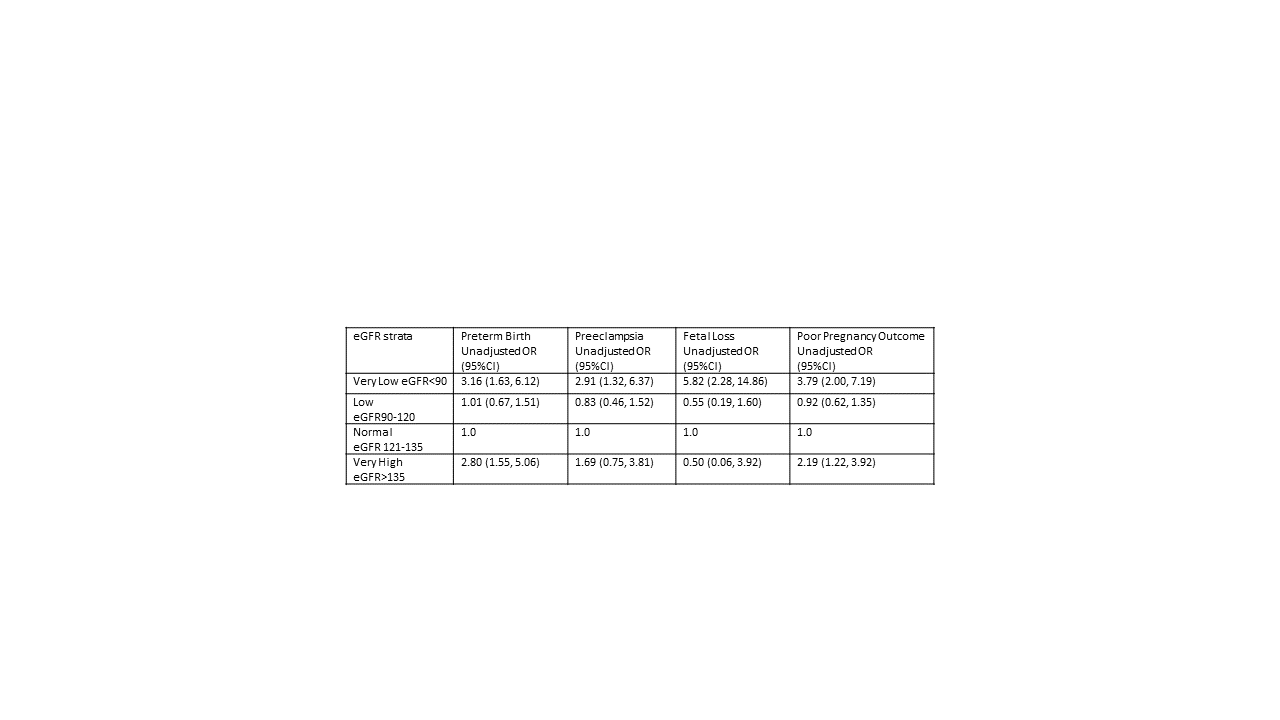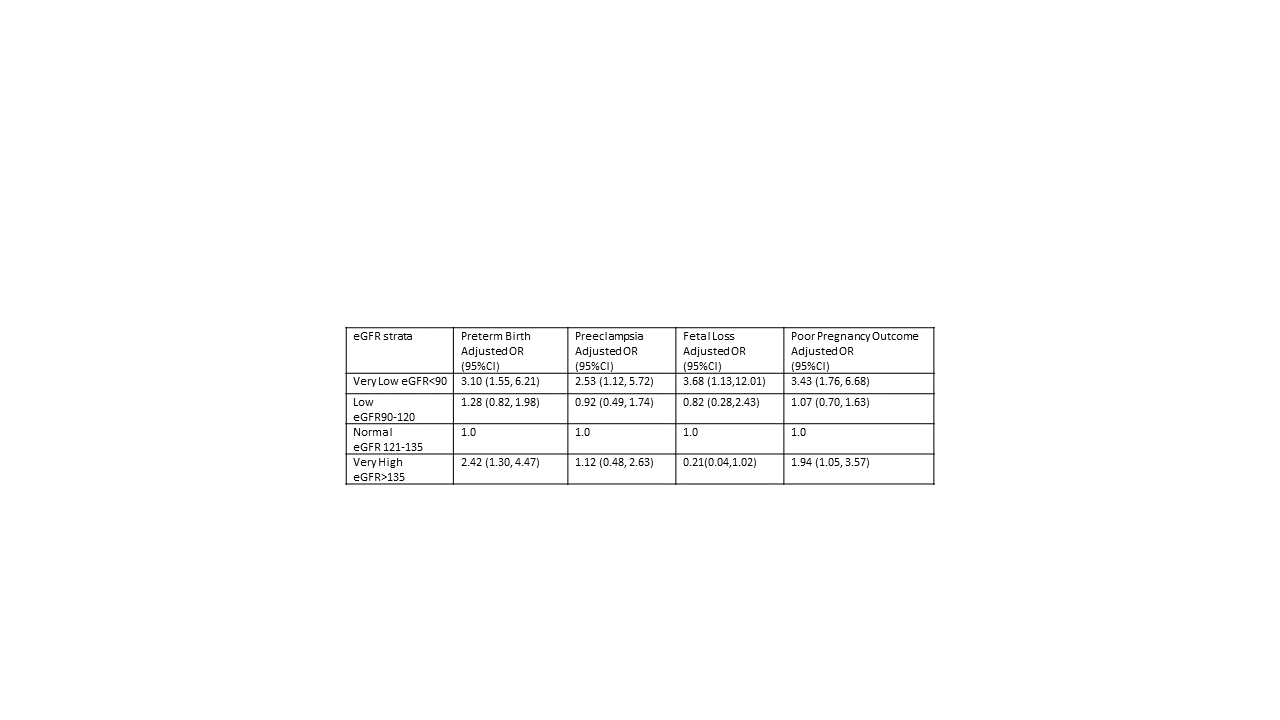Session Information
Date: Tuesday, November 9, 2021
Title: Reproductive Issues in Rheumatic Disorders Poster (1711–1731)
Session Type: Poster Session D
Session Time: 8:30AM-10:30AM
Background/Purpose: Women with SLE are at increased risk for adverse maternal and fetal outcomes with increased odds of preeclampsia, hypertension, Cesarean and preterm deliveries, low birth weight, and congenital defects. Many markers of SLE disease activity fail to identify all women at risk for adverse pregnancy outcomes. Previous studies found a U-shaped relationship between 2nd trimester eGFR and adverse pregnancy outcomes. Both very low and high eGFR had a high risk for adverse pregnancy outcomes. The purpose of this study was to determine the relationship of 2nd trimester eGFR and adverse pregnancy outcomes in women with SLE.
Methods: This was an individual patient-level meta-analysis including 684 pregnant women with SLE who received rheumatology care at academic centers in North America and Europe from 1995 to 2017. Preeclampsia, preterm birth, fetal loss, and poor pregnancy outcome (composite outcome) were outcomes of interest. Polynomial and logistic regression models were used to evaluate the relationship between eGFR and adverse outcomes. Women with an eGFR 120-135 ml/min/1.73m2 were in the reference group, based on previous studies demonstrating low adverse pregnancy outcome in this range. eGFR was stratified into groups based on established cut-offs from previous studies. Multivariable regression models adjusted for race, age, and SLE disease activity.
Results: Among 684 women, 52 women had very low eGFR (< 90ml/min/1.73m2), 232 had low eGFR (90-120ml/min/1.73m2), 336 had normal eGFR (121-135ml/1.73m2), and 64 women had very high eGFR ( >135ml/min/1.73m2). Greater than a third of women had lupus nephritis and 22% of women were of Black race. A U-shaped relationship between 2nd trimester eGFR and adverse outcomes was observed. Women with very low eGFR had higher odds of fetal loss, preterm birth, preeclampsia, and poor pregnancy outcome. Very high eGFR was associated with poor pregnancy outcome and preterm birth.
Conclusion: We demonstrate a U-shaped relationship between 2nd trimester eGFR and adverse pregnancy outcomes in women with SLE. Both women with very low eGFR defined as < 90ml/min/1.73m2 and high eGFR, defined as >135ml/min/1.73m2 had higher odds of adverse pregnancy outcomes. Measurement of kidney function with 2nd trimester GFR estimates may be an additional tool that can be utilized to predict adverse outcomes in pregnant women with SLE.
 Table 1: Association of 2nd Trimester eGFR and Adverse Pregnancy Outcome
Table 1: Association of 2nd Trimester eGFR and Adverse Pregnancy Outcome
 Table 2: Association of 2nd Trimester eGFR strata and Adverse Pregnancy Outcomes. Adjusted for race, SLEDAI score, and age.
Table 2: Association of 2nd Trimester eGFR strata and Adverse Pregnancy Outcomes. Adjusted for race, SLEDAI score, and age.
 Frequency of Adverse Pregnancy Outcomes by eGFR Strata Depicting U-shaped relationship
Frequency of Adverse Pregnancy Outcomes by eGFR Strata Depicting U-shaped relationship
To cite this abstract in AMA style:
Lucas A, Eudy A, Petri M, Fischer-Betz R, Nabil A, Nalli C, Andreoli L, Tincani A, Molad Y, Balevic S, Clowse M. Predicting Adverse Pregnancy Outcomes in Women with Systemic Lupus Erythematosus (SLE) Using 2nd Trimester Estimated Glomerular Filtration Rate (eGFR) [abstract]. Arthritis Rheumatol. 2021; 73 (suppl 9). https://acrabstracts.org/abstract/predicting-adverse-pregnancy-outcomes-in-women-with-systemic-lupus-erythematosus-sle-using-2nd-trimester-estimated-glomerular-filtration-rate-egfr/. Accessed .« Back to ACR Convergence 2021
ACR Meeting Abstracts - https://acrabstracts.org/abstract/predicting-adverse-pregnancy-outcomes-in-women-with-systemic-lupus-erythematosus-sle-using-2nd-trimester-estimated-glomerular-filtration-rate-egfr/
